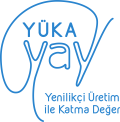Thanks to the skills and abilities they will gain after the capacity and competency increase programs to be designed in order for Interface Structures to have a structure that can produce solutions directly to the needs of the industry with a result-oriented approach, it will also be possible for enterprises that are candidates for innovation-based transformation to provide more qualified services by encouraging them to benefit from critical technologies. As a result, it is expected that the R&D studies carried out in Istanbul can be transformed into economic and social benefits and create economic value for the region and the country.
During the project, various national and international practices, trainings and tools will be used. In order to create new strategies for each interface separately, "USIMP Interface Scorecard" and "USIMP Current Situation Analysis" applications will be made for self-assessment, where their competencies and areas of improvement are measured. In addition, the "USIMP Innovation Scorecard" methodology is used for end users. In addition, international trainings will be given by cooperating with ASTP-Proton and ATTP, the only inclusive institution in the European Union on Technology Transfer. Participants will receive training on international recognition certificate with RTTP trainings.
In order to improve the institutional structure and human resources capacity of the interface institutions in the project; While training and recruiting interface experts who can act as Business Representatives to increase university-industry collaborations and provide patent valuation and commercialization support so that R&D results can turn into economic and social benefits, businesses inclined to implement critical technologies will develop university-industry collaborations and develop the capabilities and management skills for using technology development. They will also contribute to increasing their corporate management skills by providing access to their consultancy. Visibility activities of the project, opening and closing meetings, Interface Scorecard that will be applied to determine the capacity and competencies of the enterprises, Current Situation Analysis, Action Plan Formation activities will be carried out by all partners and participants together.
As a result of the project, the Final Beneficiaries will be able to strengthen their R&D, innovation and organizational capabilities, institutionalize the innovation culture, develop effective mechanisms for R&D and innovation financing, and enable the industry to make competitive and efficient production with high added value by utilizing advanced technologies. In this context, support will be given to the use of strategies for intellectual property in businesses in a way that will provide benefits for economic and technological progress. It will contribute to the development of entrepreneurship and commercialization activities with the transfer of knowledge and technology, which will enable the R&D results to be transformed into economic and social benefits. As a result, through the project activities, capacity building will be achieved for the purpose of commercializing high value-added products and services and exporting them to global markets, reducing the current account deficit, raising a qualified workforce, and increasing the diffusion of technology.
Added Value with Innovative Production and Supported by ISTKA: YAY-YÜKA Platform Project aims to increase the capacities of the interface structures in the Istanbul region. As a result of the successful completion of the project, interface structures in various cities and regions will be able to transform their structures into innovative and sustainable platforms by utilizing the methodology to be created.
Key Account Manager candidates in the project will be selected from the personnel of University Technology Transfer Offices and Umbrella Organizations (Teknopark Istanbul A.Ş. and Istanbul Anatolian Side Organized Industrial Zone (IAYOSB)).
Project Representatives will be selected from the enterprises involved in the project.
Key Account Managers will ensure conducting a self-assessment of the enterprises involved in the project, using the Innovation Scorecard and Current Situation Analysis online tools.
In accordance with the results of the self-assessment, Key Account Managers and Project Representatives will hold Common Mind Meetings with enterprises to identify enhancements and create Roadmaps for areas that can be improved. These Roadmaps will be submitted to enterprises for endorsement. In accordance with the affirmed Roadmaps, enhancement studies will be started, and at this phase, the enterprise may need to receive technical and managerial consultancy.
